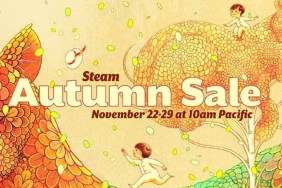Cecil + Rosa = Ceodore?!
It’s still weird to me seeing direct sequels to Final Fantasy games. These titles tend to end on such a final closing note that it’s difficult to grasp any continuation after the ending credits. Could you imagine Final Fantasy VI, with its world without magic? I certainly couldn’t. So how would a sequel for one of the most beloved Super Nintendo RPGs, Final Fantasy IV (that’s the old Final Fantasy II in the U.S), fare?
[image1]Well, let’s first focus on what we do know in the prologue for Final Fantasy IV After Years: Cecil and Rosa manage to save the world, and Cecil is king with Rosa as his queen. Their kid, Ceodore (*cough*) is a teenage prince in search of entry into the kingdom’s famed Red Wings army, for which he must take a courage test. To be honest, After Years lacks the wind-up kick that we’re all used to – it’s just Ceodore going into caves and ultimately fighting a boss all by himself, without much risk of dying. In past games, we had much more exciting scenarios, but for this sequel, don’t expect to invade the Mako reactor right off the bat.
After the intro lowers your expectations, be prepared to continue to keep them low, as the dark and gloomy atmosphere continues to pervade the air no matter whether you’re exploring mountains, small towns, or wet dungeons. "Explore" might be a flexible word in this case, since just like old school JRPGs, you’ll be harassed every few steps or so by random encounters.
Fighting in After Years is practically the same affair of menu choices you’ve likely become accustomed to by now. So much of this sequel is focused on emulating the old style of RPGs that even the graphics and sounds take a trip back to fifteen years ago with motionless enemy sprites, super-deformed characters, and MIDI-like music.
However, there are a few gameplay features not found in past games. Battles are dependent on the phases of the moon that change as you rest or progress through the day, with certain abilities becoming stronger or weaker depending on the moon phase. As you collect more characters in your main party, special moves can be performed as well, providing an alternate tactical option in harder fights. The more you play, the more you’ll notice that most of the fights are a race to see who hits the other guy faster and harder, rather than tactics alone. That’s not to say After Years isn’t a good RPG – for the first three or so hours of game time, long-time gamers will begin to feel young at heart as they play the same style of game they did after getting back from school and spending a few hours on the Super Nintendo before dinner.
[image2]On the other hand, some decisions that the developers made might change your mind. The main download you’ll make on the Wii’s Wiiware Shop Channel will cost you 800 Wii Pts, but that won’t get you the full story. While this download does provide you with an episode that can be played to completion, in order to get the other parts, which present alternative views on the events in the story from other characters, you’ll have to invest in additional download packs for a variety of prices.
After seeing all the care given by Square-Enix to the Final Fantasy IV DS remake, it’s a wonder why they’d revert back to their old character sprites and music catalog in order to provide fans with this sequel, especially to those who had their first experience with the DS version. Why wouldn’t they make use of those assets, rather than redrawing and redesigning them to make them more primitive for the Wii version?
Final Fantasy IV: The After Years is an unnecessary game through and through, as it continues a story that was already well-thought out and closed off years ago. If you are still somehow curious about how Cecil kept his wonderful, golden hair after seventeen years, there’s nobody stopping you, but be warned – and listen well, Square Enix, if you’re reading this – a little deformed fifteen-year old sprite can only be groomed so much.
-
Downloadable, old-school <b>Final Fantasy</b> game
-
Sounds, plays, and looks a decade old
-
See more, pay more
-
Feels too fan-made in a bad way
-
Does <b>FFIV</b> need a sequel?







